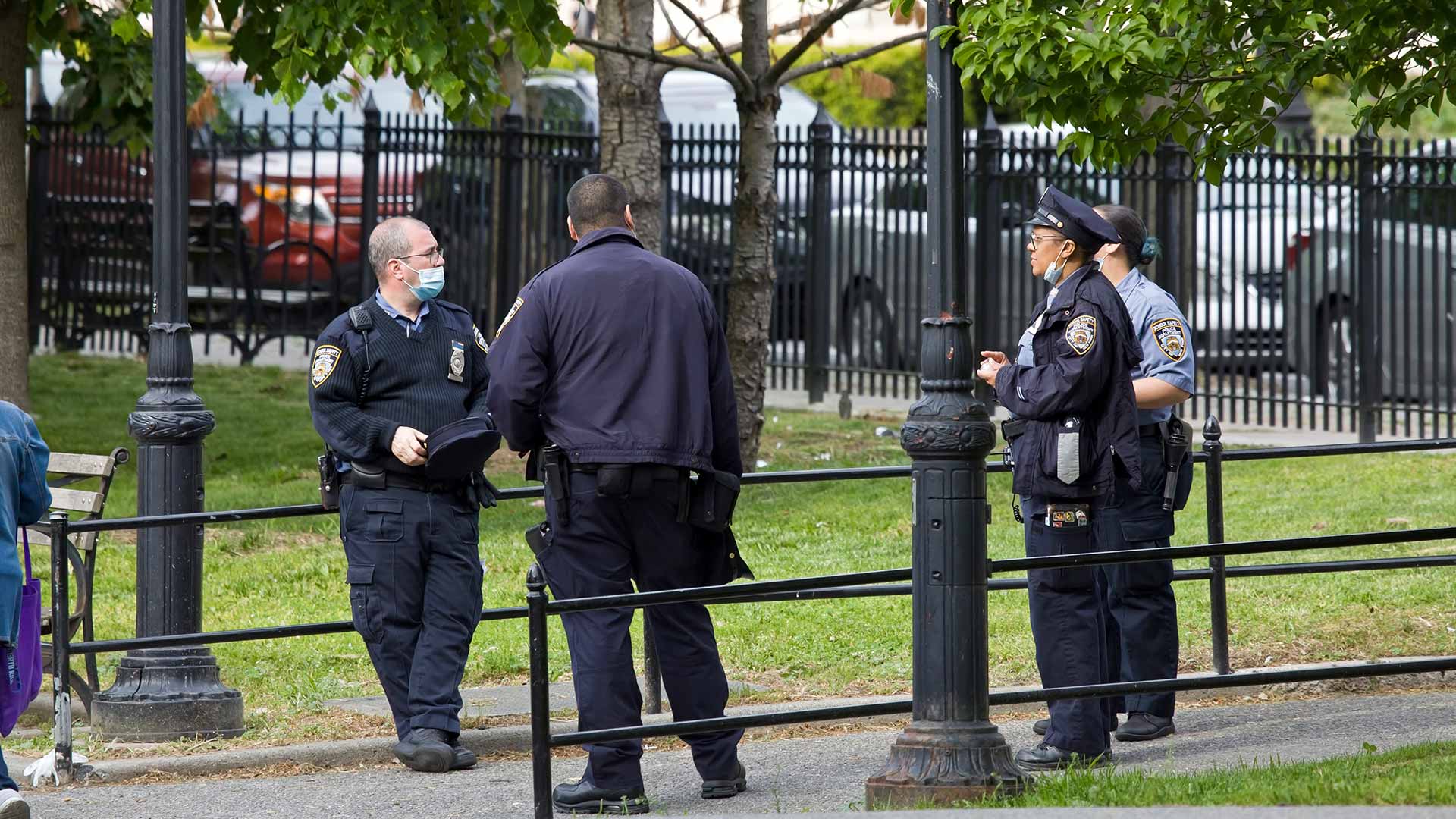
Prior to the 1950s, the concept of a school resource officer (SRO) was not widely heard of. Most educational interactions between schools and local law enforcement were done on an informal basis and by request. Such topics as bicycle safety, child molesters and traffic safety were common.
Today, SRO programs have evolved into a nationally accepted system of assigning law enforcement officers within the educational environment. The SRO acts on law-related issues, violence diffusion, safety programs, alcohol and drug use prevention, and crime prevention. The SRO takes a personal interest in students and their activities while being a resource for teachers, parents and students.
History of SRO programs
In 1973, the National Advisory Commission on Criminal Justice Standards and Goals advised all law enforcement agencies to provide at least one annual presentation to every grade level in their jurisdiction related to the law enforcement officer’s role in society. Additionally, it was recommended that agencies with over 400 employees assign a full-time officer to each junior and senior high school to counsel students and enforce the law. This declaration gave school resource officer programs their first national recognition (The Atlantic,
September 2015).
The 1999 Columbine High School shootings triggered calls for stronger policing presence in schools. Between 1999 and 2005, more than 6,500 new SROs were deployed across the country. The Sandy Hook massacre in 2012 further incited interest in using SROs as armed security.
SROs today and the school-to-jail pipeline argument
According to the National Center for Education Statistics, there are roughly 46,000 school resource officers patrolling the halls of America’s schools. SROs can be found in 42% of schools across America, with 57% of schools having some sort of security presence (New York Times, March 29, 2018), responsible “for safety and crime prevention in schools,” according to the U.S. Department of Justice.
SRO programs have not been without their critics. There are accusations that SROs have contributed to developing a school-to-jail pipeline. Zero-tolerance disciplinary policies have resulted in more students than ever in the courthouse rather than the principal’s office (Best Schools magazine, March 2016). According to the Washington Post, nearly 70% of school police officers report regular involvement in disciplinary matters. Viral videos tell a visceral and disturbing story. High-visibility use-of-force incidents involving students have also brought criticism.
Students using cellphones against school rules, swearing at a teacher, having water balloon fights or throwing spitballs do not belong in handcuffs, police cars or courtrooms. When SROs are pushed into the world of misbehavior, behavioral issues and minor infractions, the line between matters that call for police intervention and those that call for the action of an experienced educator is blurred.
Student behavioral challenges have always been present in schools and should be managed with disciplinary measures by school staff. Students’ capacity for impulse control, decision-making, managing emotions and fully considering the consequences of one’s actions are still in the developmental stage.
Entering students into the juvenile justice system for such mistakes is to impose long-term consequences, increasing the likelihood that a child will end up in the juvenile justice system — and later, as a byproduct of these experiences, adult prisons. Unlike a patrol officer who may respond to a street crime, an SRO needs to evaluate the totality of circumstances in a school setting, diverting youth away from the juvenile justice system whenever school-generated correction and discipline is an option. Educators and SROs should be partners in recognizing the root cause of recurrent disciplinary challenges and finding the proper response for each student.
It is incumbent upon SROs to recognize the difference between disciplinary infractions and criminal behavior. This places the onus on police departments to ensure that the mission and duties of SROs are clearly outlined in memorandums of understanding. MOUs ensure that school officials are responsible for discipline, while SROs focus on embracing what the National Association of School Resource Officers (NASRO) considers a best practice, the “triad concept.” This defines the role of an SRO as an educator (i.e., guest lecturer), informal counselor/mentor and law enforcement officer (Police1.com, Feb. 13, 2019). Captain Justin Chapman of the Sandy Police Department in Utah, a national SRO trainer, adds a fourth role: emergency manager. This additional role adds SROs to the process of developing safety plans and strategies linking school administrators with local first responders.
Building community trust
SROs are among the most visible and accessible police officers in a community. This fact alone means they steward an important responsibility. As the liaison between the police department and community, the impression an SRO leaves with students will influence how members of the community perceive police officers in a more general sense.
Building relationships, reinforcing positive behaviors, and connecting youth with needed resources are key for a successful SRO program.
SRO training
A recurring theme in debates over SROs involves training. In June 2019, the NBC Today show highlighted several incidents caught on camera in which police officers used excessive force against children as young as 6. Unfortunately, a string of disturbing events involving SROs undermines the value of the program and the role of SROs as a positive presence in school communities.
Many large educational organizations, such as the National PTA, the National Association of Secondary School Principals and the National Association of School Psychologists, support SROs in schools but want reforms. These organizations have called for more training, stricter standards for the selection of SROs, the inclusion of school principals in the assignment process and annual evaluations that consider disproportionate rates of enforcement by race, gender and ability (National Association for Secondary School Principals, August 2020).
While there has been some discussion in select school districts and political circles about eliminating SROs, that remains highly unlikely. Creating defined standards for training and clearly outlining the mission and role of SROs in the school environment is critical.
Being an SRO today is more than a transfer from patrol to a school. Success will require a change in policing mentality and knowledge of rules and laws that govern school policing. Search and seizure, free speech, Miranda and interacting with adolescent behaviors are considerably different in a school setting as compared to general police work. Parent interaction, partnering with counselors and teachers, class presentations, and de-escalation require ongoing and expansive training for SROs to be successful.
As seen in the August 2021 issue of American Police Beat magazine.
Don’t miss out on another issue today! Click below:






